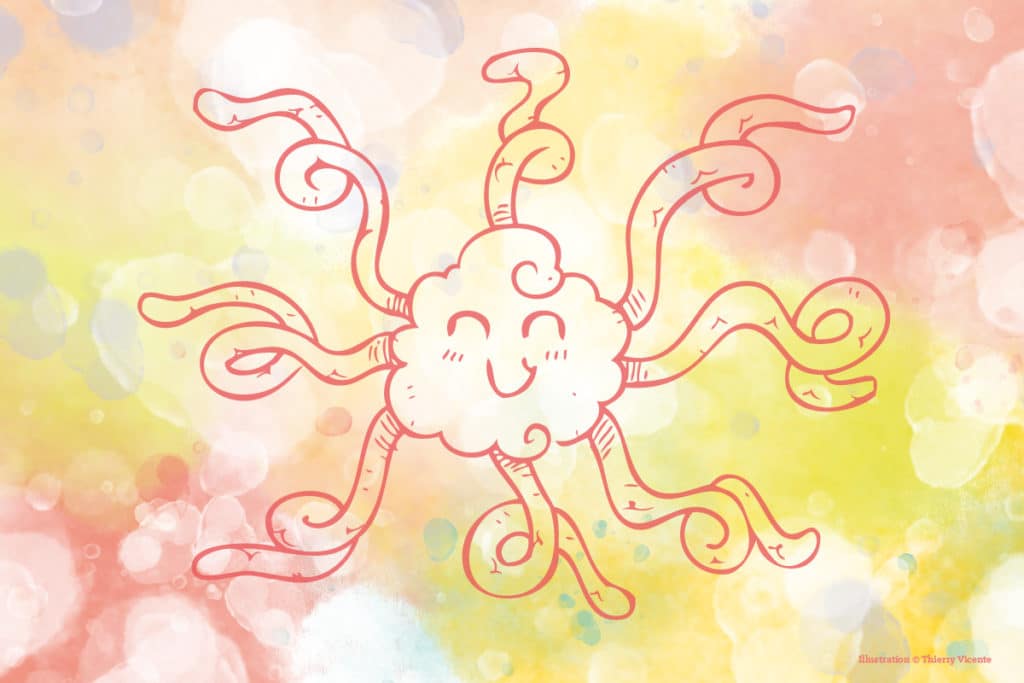[LUM#3] The brain nourished by connection
What nourishes the human brain? Social connections, say psychiatrists. Relationships with others fuel our development. Are humans social animals? We've known this for a long time. But perhaps we didn't realize just how much...

Amaria Baghdadli observes the brain indirectly, she says, by focusingon"the behaviors and trajectories of individuals." This outside perspective provides a highly informative window into this turbulent organ, one of whose key characteristics is that it is constantly developing.
What would I be without the other?
This development does not happen on its own, but through social interaction, which is vital from the outset. In terms of brain development, the last few months of pregnancy are a major construction site: this is when the baby's neurons are put in place to form the cortex. "At birth, everything is already pre-wired. What is already present is a complex communication skill. The baby is ready to talk and think. But above all, to interact," explains the psychiatrist.
However, these skills still need to be developed. How? "Through active experimentation, particularly through interaction." Communication is therefore a prerequisite for development: without it, the little human cannot develop. In order to fulfill their potential, genetic promises need this nutrient: social connection...
What would I be without others? "I don't believe that self-awareness can exist without awareness of others," says Amaria Baghdadli. The capacity for empathy is therefore one of the main components of being human. "It's recognizing that others are like me. And at the same time, not confusing them with myself: I know that I am both similar and different."
You miss the connection and everything feels empty
"Social motivation," the impulse that drives us to interact with others, is therefore a key element of development. It is a skill that appears in children's first year of life, but which is lacking in children with autism. Without it, proper development cannot occur. This can affect your entire social autonomy. This is a serious disability, which results in great difficulty in implementing social codes and conventions, understanding those around you, expressing yourself, and finding your place in society...
The brain never stops developing. Similarly, our dependence on others accompanies us throughout our lives. A baby who suffers from a lack of attention is at risk of developing serious disorders. At the other end of life, nothing has changed. "Old age is just another stage of development. Among the factors that determine the fragility of the elderly, human relationships are very important. We need social interaction throughout our lives: it is a key factor in protecting the individual in all difficult situations."
Find UM podcasts now available on your favorite platform (Spotify, Deezer, Apple Podcasts, Amazon Music, etc.).